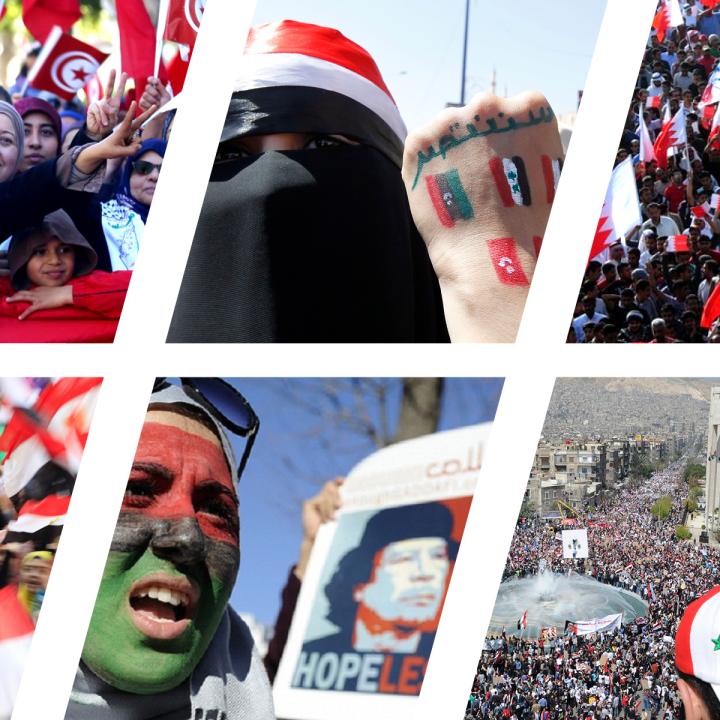
- Policy Analysis
- Policy Alert
The Sectarian Shadow Over Bahrain’s Election

The results will indicate how the Sunni government is managing its majority Shia citizenry.
Voters in the Persian Gulf kingdom of Bahrain go to the polls on November 12 to select between candidates for the Council of Representatives, the upper house of parliament that notionally advises King Hamad bin Isa al-Khalifa. The island’s citizen population is estimated to be two-thirds Shia Muslim, but this is never reflected in the council, which always has a Sunni majority.
In the previous election, Shia candidates won just fifteen out of forty constituencies, which favor Sunni areas. Even in 2010, the peak of their political power, Shia won just eighteen seats. Most mainstream Shia seem to accept they will never win a majority, but they would likely perceive another 2010-level victory as a fairer outcome than their current seat tally.
Officially, Bahrain makes no distinction between Sunnis and Shia; they are all deemed Muslims. Yet the Sunni king must still perform a balancing act between hardliners in the royal family who run the security services and more moderate voices—including in the Shia community, whose political societies have been banned. The government has also increased the number of Sunni citizens by granting nationality to police recruits from Jordan, Pakistan, and other countries.
Despite the kingdom’s history of intercommunal tensions, the current atmosphere is peaceful. King Hamad is very proud of his ability to bring religious groups together, as reinforced during recent visits by Pope Francis and Sheikh Ahmed al-Tayeb, the Grand Imam of al-Azhar Mosque in Cairo. Notably, however, Pope Francis spoke about religious freedom and urged the government to abandon the death sentence—a pointed statement given that a couple thousand young Shia are currently imprisoned and several are facing execution. For his part, Sheikh Tayeb, the highest Sunni authority in the world, called for “a dialogue...to end division, strife, and sectarian conflict.”
Indeed, elements of discord persist—a situation that is all the more significant because Bahrain lies at the center of a tough regional neighborhood. It is joined by a causeway to an area of Saudi Arabia that has a local Shia majority population. And a rare opinion poll conducted this summer suggested that historically disadvantaged Bahraini Shia are significantly sympathetic toward Iran, lying just across the Gulf. The island also hosts the headquarters of the U.S. Fifth Fleet. Notably, the American embassy links to an online map showing Shia areas around the capital that the U.S. government forbids its employees from entering. In addition to embassy personnel, several thousand American service personnel and civilian contractors live in Bahrain and work at the fleet headquarters.
The aforementioned poll was also the first of its kind to be conducted since Bahrain and Israel signed the Abraham Accords, the 2020 normalization agreement that most Sunni and Shia respondents alike still viewed with great skepticism two years later. In the interim, Israel has established an embassy in Manama, regular civilian flights between the two countries, and a navy liaison officer at NAVCENT inside the Fifth Fleet facilities.
Simon Henderson is the Baker Fellow and director of the Bernstein Program on Gulf and Energy Policy at The Washington Institute, and author of its succession paper “Bahrain After the Prime Minister.”



